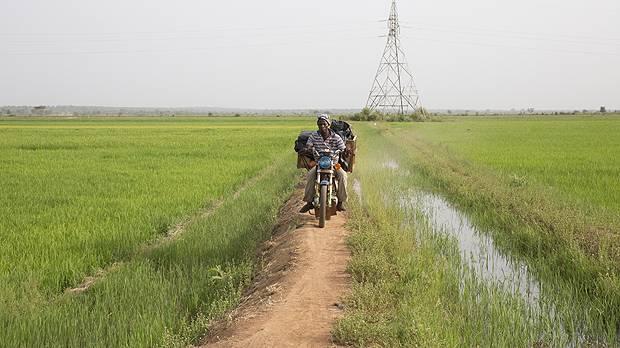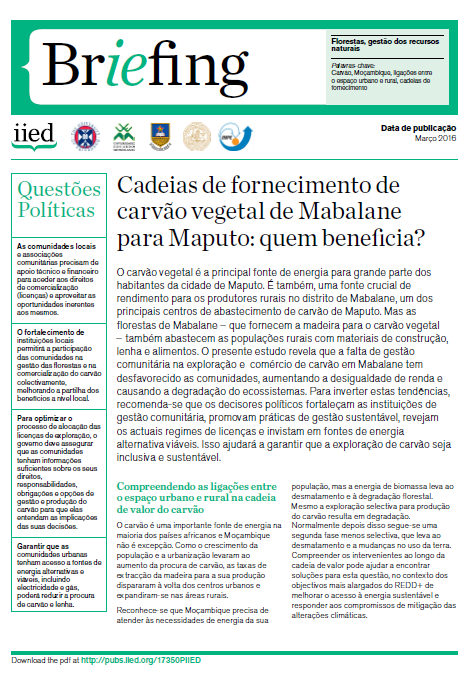Focal point
Location
Mission
Our mission is to build a fairer, more sustainable world, using evidence, action and influence in partnership with others.
Who we are
IIED is one of the world’s most influential international development and environment policy research organisations. Founded in 1971 by economist Barbara Ward, who forged the concept and cause of sustainable development, we work with partners on five continents. We build bridges between policy and practice, rich and poor communities, the government and private sector, and across diverse interest groups. We contribute to many international policy processes and frameworks, including the Intergovernmental Panel on Climate Change, the Millennium Ecosystem Assessment and the UN conventions on climate change and biological diversity.
What we do
IIED carries out research, advice and advocacy work. We carry out action research — generating robust evidence and know-how that is informed by a practical perspective acquired through hands-on research with grassroots partners — and we publish in journals and maintain high research standards. We advise government, business and development agencies, and we argue for changes in public policy. We focus on bottom-up solutions, stay open to flexible, adaptable solutions and are marked by a tradition of challenging conventional wisdom through original thinking.
Resources
Displaying 156 - 160 of 367Sécuriser les producteurs des périmètres irrigués de Sélingué et Maninkoura
Cette étude présente les résultats des enquêtes auprès des acteurs paysans, gestionnaires et acteurs privés des périmètres de Sélingué et Maninkoura (Mali) concernant les modalités d’application et la pertinence du cahier des charges actuel. Les entretiens portaient sur le système de gestion foncière et le développement des périmètres tels que les acteurs pouvaient le percevoir. Il s’agissait, avec l’ensemble des acteurs, de discuter des formes de sécurisation foncière, nécessaires et envisageables, qui pourraient permettre un meilleur développement des exploitations familiales.
Sécuriser les producteurs des périmètres irrigués de Sélingué et Maninkoura
Enhancing women’s role in land management decisions
Large-scale agricultural investments impact upon men and women in different ways, yet women’s voices and interests are not always heard in decisions about land.
Charcoal supply chains from Mabalane to Maputo: who benefits?
Charcoal is the main cooking energy source for people living in Maputo city. It is also a crucial source of income for rural producers in Mabalane district, a key supplier of Maputo’s charcoal. But Mabalane’s forests — which provide the wood for charcoal — also supply rural populations with construction materials, firewood and food. Our research shows that the lack of community management in Mabalane’s charcoal trade has disadvantaged communities, widening income inequality and causing ecological depletion.
Cadeias de fornecimento de carvão vegetal de Mabalane para Maputo: quem beneficia?
O carvão vegetal é a principal fonte de energia para grande parte dos habitantes da cidade de Maputo. É também, uma fonte crucial de rendimento para os produtores rurais no distrito de Mabalane, um dos principais centros de abastecimento de carvão de Maputo. Mas as florestas de Mabalane – que fornecem a madeira para o carvão vegetal – também abastecem as populações rurais com materiais de construção, lenha e alimentos.








